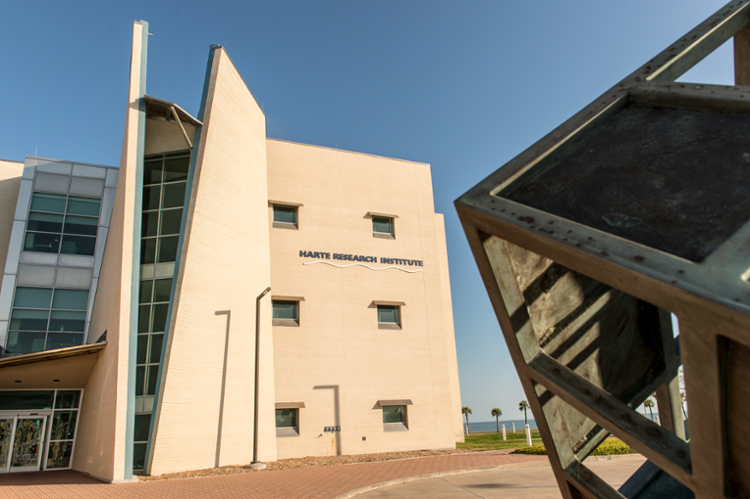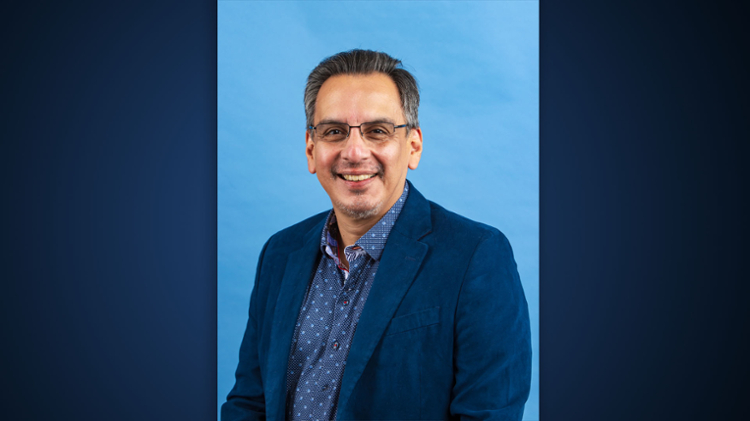Outstanding Islander Graduate Julie Romano ’23 Earns Electrical Engineering Degree as Nontraditional Student
CORPUS CHRISTI, Texas — After receiving a bachelor’s degree in anthropology and graphic design from the University of Notre Dame in 2011, Julie Romano ’23 returned to her hometown of Corpus Christi. Once there, Romano felt her skills were underutilized in her graphic design job, and after gaining inspiration from friends who were alumni at Texas A&M University-Kingsville, she took a leap of faith that would put her on an entirely different career trajectory.
“I wanted to study close to home, but more importantly, I wanted to be treated as an individual at university, rather than as a number,” Romano said, “I found this at TAMU-CC; I felt like I truly belonged and was happy to pursue my new dream at the Island University.”
Now, as the Fall 2023 College of Engineering and Computer Science Outstanding Islander Graduate, Romano will receive a Bachelor of Science in Electrical Engineering when she walks the stage on Dec. 16.
Taking inspiration from a good friend who had found success as an architectural engineer, Romano was able to apply her unique academic background to her new field, beginning with an Associate of Science in Mechanical Engineering from Del Mar College. She transferred to TAMU-CC in 2020. By embracing design-based thinking, Romano was able to seamlessly integrate her diverse skill set into electrical engineering.
“In graphic design, I learned about the five stages of the design process: to empathize, define, ideate, prototype, and test, which helps you create human-centered solutions to problems,” she said. “I was able to take these ideas and find solutions other engineers might not think of. While on the surface design and engineering do not seem so similar, I feel engineering is just design but with more math.”
Her university journey was marked by involvement in the TAMU-CC Honors Program while undertaking several other roles including president of the Society of Hispanic Professional Engineers (SHPE), and membership in Phi Theta Kappa, the Institute of Electrical and Electronics Engineers (IEEE), and the Society for Advancement of Chicanos/Hispanics and Native Americans in Science (SACNAS). For Romano, it was important to contribute to a supportive community for nontraditional, first-generation students like herself.
“Engineering is a difficult field,” she explained. “Emotional and academic support from classmates can make a world of difference. Teamwork is at the heart of most engineering projects, so through volunteering, I have been able to hone this skill and make friends that have been vital to my success as a student.”
Beyond coursework, Romano’s impact resonates in her role as a mentor. Through her work with SHPE, Romano helped raise money so that nine TAMU-CC students could attend the organization’s regional convention. She also provided career and internship guidance to her fellow students. In addition, her capstone project team involved a leadership role in developing an underwater search and rescue submersible.
Romano’s journey was not without challenges, however. Such a mid-career pivot required sacrifices, and Romano decided to study full-time and leave her job. Fortunately, the academic support Romano received from her mentor Dr. Ruby Mehrubeoglu, TAMU-CC Professor and Program Coordinator in the Department of Engineering, and financial support from Louis Stokes Alliances for Minority Participation (LSAMP) Program, Port of Corpus Christi Engineering Scholarship, Linda B. Smith Environmental Scholarship for Women, and the Govind & Bhakti Nadkarni Engineering Scholarship from the Coastal Bend Community Foundation, among others, played a crucial role in her overcoming these hurdles.
“These scholarships entirely changed the course of my life,” she said. “The financial support I received meant I could eventually work fewer hours to concentrate on school, research, and extracurricular activities. They also gave me the skills to apply and be qualified for two engineering internships with the Surgical Robotics team at Medtronic and the Aerospace division at Honeywell.”
Romano also worked as a student assistant in Mehrubeoglu’s lab, with duties including creating engineering tools using structured light 3D scanner and algorithms to determine the physical characteristics of irregularly shaped objects, like seashells.
“Julie first got my attention with her insatiable curiosity about pretty much everything,” Mehrubeoglu said. “Julie is very creative and comes up with unique solutions in research, homework, and extracurricular activities; her perspectives on the world and society have enriched our research efforts.”
As she looks forward to graduation, Romano stands as a confident and empowered Islander, ready for the next phase of her journey.
“I was worried that I would not be able to fit in as an older student, but I have grown into my own,” she said. “My time on the Island has served as my redemption story because I felt I could pivot into a new role with additional skills. I am now more confident in my choice, and I look forward to graduation and succeeding in my next phase of life.”














